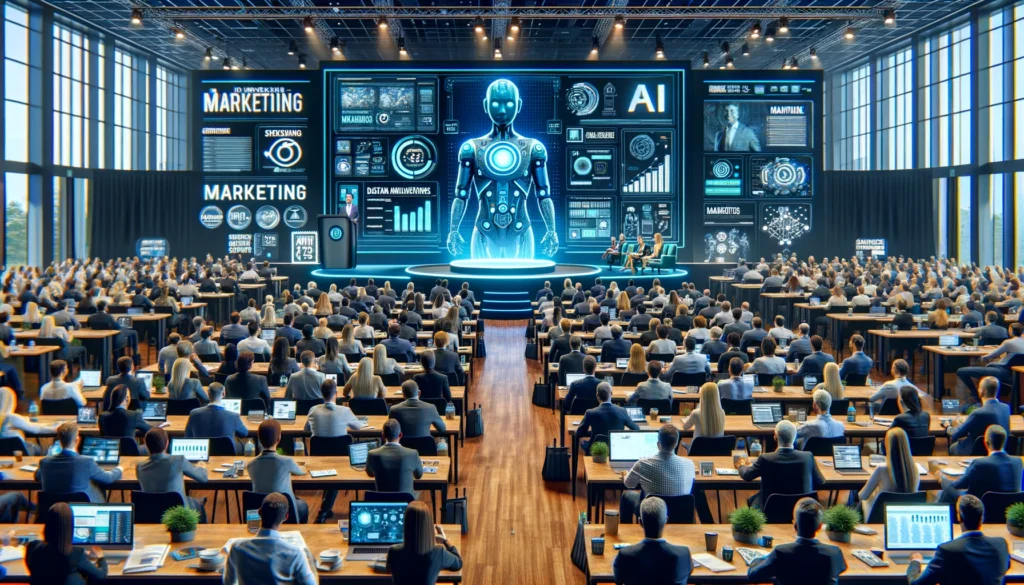- By quade
- 27 May 2024
Navigating the World of AI CMS
No matter the industry, content management is central to any business operation. This system handles vast amounts of text, spreadsheets, emails, PDFs, and other materials. However conventional methods are being challenged with new technology, leading to the exciting world of AI CMS.
Experts in content management participated in a recent KMWorld webinar to explore innovative solutions and strategies. These discussions frequently focused on automation, integration, and AI, driving content management into the digital era.
What Does the World of AI CMS Have to Offer?

This KMWorld webinar, titled “Intelligent Content Management: Game-Changing Technologies and Strategies” was attended by some of the most experienced marketing experts across the world. Among them was Jamie Greenstein, senior marketing manager at Access. She expressed excitement in the world of AI CMS and outlined the ideal system which includes:
- A centralized and streamlined data access
- Seamless incorporation of compliance requirements into information management workflows
- A unified governance framework across the organization
- AI-driven automated classification tools
- Retention automation for regulatory compliance and resource efficiency
- Enhanced information security to protect sensitive data and maintain data integrity
Although these services only represent the ideal scenario. While digitizing information has many benefits, there are also many challenges, something that Greenstein admits. These challenges range from intricate costs and delayed timelines to labor availability, user acceptance, change management, and budget alignment, making the modernization of an enterprise’s information repository a complex endeavor.
Greenstein proposed that in the world of AI CMS, proper indexing is crucial for successful digitization. This is characterized by quick and efficient access, precise classification, reduced risk, and cost-effective solutions. With AI, organizations can enhance file-level indexing, leading to increased productivity through content democratization, improved decision-making, better compliance, and cost reductions due to greater efficiency.
Another expert in attendance was Teodora Petkova a specialist in semantic content and metadata at Ontotext. She mentioned that managing content complexity can be achieved through using knowledge graphs. Ontotext is a company that operates at the crossroads of data and knowledge management, leveraging AI, knowledge graphs, and semantic technologies to enhance data value. Petkova highlighted Ontotext’s flagship product, Ontotext GraphDB, which focuses on developing and refining knowledge graphs by connecting open and proprietary data while utilizing text analysis. This will make it a major beneficiary in the world of AI CMS
Like many companies, Ontotext encountered the common issue of complex content management. They addressed this by applying technology and a strategic approach to create a knowledge graph for their marketing content.
Limits to the World of the AI CMS

James Morris, the principal sales engineer at Semaphore/Progress, agreed with this assessment, saying content isn’t enough to build a successful business. Statistics indicate that 80% of data will be unstructured by 2025, while 90% of decisions are based on structured data. Recent research made in 2023 by IDC and Accenture shows that workers spend about 2.5 hours per day, or roughly 30% just researching information, half of which won’t even be used.
Morris emphasized that enterprises can navigate the complexities the world of of AI CMS by utilizing the power of context and metadata, ensuring the right content reaches the right people at the right time. He underscored the importance of knowledge modeling, a data governance framework serving as a source of truth for organizational domains, which must be flexible to adapt to changes within organizations, content, and users. To manage this ongoing transformation, Morris advocated for collaboratively leveraging the collective intelligence within an organization.
Juanita Olguin, senior director of product marketing at Coveo, highlighted in their presentation the enhancement of content search and knowledge discovery through AI and generative AI (GenAI).
They began by referencing a Gartner statement, clarifying that “generative AI, in isolation, is neither an alternative to, nor replacement for, current search technologies.” Olguin pointed out that data, knowledge, search, and automation are essential to support GenAI-based content management.
According to Olguin, effective large-scale knowledge management requires search and automation in the world of AI CMS. Human cognitive capacity is limited, and dealing with numerous systems in various formats complicates traditional data centralization and curation methods.
Olguin pointed out that generative answering, though popular, is just one of many search techniques. Its versatility allows it to be implemented across websites, service portals, service management or CRM apps, chatbots, and more.
Ultimately, search and AI can significantly enhance Knowledge Management (KM) initiatives in various ways and help lead us into the world of AI CMS. These include advanced access security, automated updates for content and data sources, AI that learns from user search behaviors, personalization using real-time and historical data, improved business controls, and more.
To explore content management strategies and solutions in detail, you can view an archived version of the webinar here.
How the World of AI CMS Can Benefit BPO Services?
The integration of AI-powered content management systems (CMS) in Business Process Outsourcing (BPO) services offers numerous advantages. Using the world of AI CMS in BPO IT services can streamline their document management processes.
This system ensures faster retrieval and more accurate information handling offshore outsourcing solutions. Advanced AI capabilities enable automated content classification and tagging, reducing manual efforts and minimizing errors.
Additionally, AI-driven insights can help personalize client interactions and improve overall service quality. Ultimately, AI CMS technology empowers BPO services to deliver higher value to their clients through improved productivity, accuracy, and customer satisfaction.
The world of AI CMS looks very impressive to our geniusOS team. As the system develops, it can fix many of the existing problems with this system. Automation is just the first step and we are looking forward to the ability to use these systems independently with minimal human intervention. In the meantime, if you want to see what services we already have, you can contact us here.



